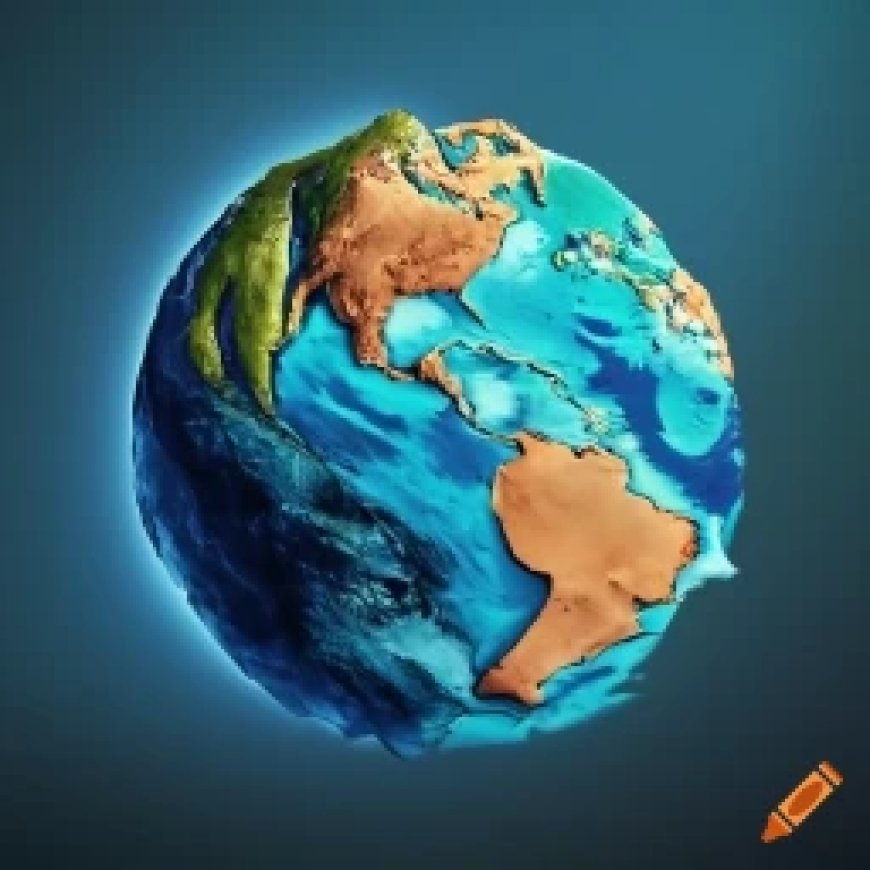climate change
Climate change refers to long-term shifts in Earth's climate patterns, primarily caused by human activities such as burning fossil fuels and deforestation.

Climate crisis is one of the most disturbing, complex, sensitive problems nowadays, it results in the destruction of ecological systems, the contraction of economies and the deterioration of existing communities. In this article, the key issues behind austerity, the consequences of which are not easy to treat, are thoroughly examined.
Introduction to Climate Change
Climate change deals with lasting changes, that is, long-term trends in temperature, precipitation amount, and other climatic factors. It affects our planet’s climate system very acutely. In such a manner that historical swings in temperatures have come and gone, the factors that are currently promulgating this warming are mostly based on human activities.
Causes of Climate Change

Human Activities
By burning fossil fuels, cutting down forests, and launching industrial processes, one releases greenhouse gasses such as carbon dioxide and methane into the air, causing a warming up of our planet due to the heat-trapping of those glasses.
Natural Factors
Nature as well can displace climate patterns; e.g. volcanic eruptions and solar radiation variations may do it but smaller amounts than the greenhouse gases and other pollutants produced by humans.
Effects of Climate Change
Environmental Impact
With temperatures increase, the ice caps melt, the sea-levels rise and the severe climate conditions such as hurricanes and droughts develop. There comes an inequality in the environment which causes biodiversity loss from one side and habitat destruction on the other.
Social and Economic Consequences
Because of their dependence on agriculture, fisheries, and coastal areas, the communities in question are widely recognized as the individuals who are at greatest risk from climate change impacts. Exoduses, shortages of food, and unstable economies are some instances of social and economic effects.
Mitigation Strategies
Addressing climate change is a task, which should be tackled simultaneously both by local, national, and international actors.

Renewable Energy
The substituting of renewable energy sources such as solar, wind and hydroelectricity for oil will make fossil fuels less hence the emission of the greenhouse gas will be reduced.
Afforestation
Growing trees and remediating barren lands is one of the cheapest options of storing atmospheric carbon dioxide, which also increases the biodiversity level and prevents soil erosion.
Sustainable Agriculture
Practices that a person can use in farming sustainably, like organic agriculture and agroforestry, can be advantageous because they can help retain soil health, save water, and reduce emissions related to livestock.
Adaptation Measures
Reducing the harmful impacts of climate change is a must that should be accompanied by adaptive strategies.

Infrastructure Resilience
Providing funds for the building of sturdy frameworks like walls and flood defenses can help the locals prevent the floods which follow the tides and harsh weather conditions.
Disaster Preparedness
Strengthening early warning systems, formulating emergency response mechanisms, and developing community preparedness for climate change made it easier to overcome the effects of such emergencies.
Global Efforts and Agreements
International cooperation is at the heart of the struggle to combat global warming.
Paris Agreement
The Paris Agreement, approved in 2015, targets keeping planet's temperature increase to nick 2°C that has pre-industrial climate and aspire efforts to bring the temperature rise only to nwick 1.5°C.
Kyoto Protocol
Kyoto Protocol, a former climate agreement of countries that commit to set binding goals to reduce the emission of greenhouse gasses of developed nations, came out.
Dismissal of Climate Change and Doubt around It
In spite of the fact that it is evident that there is strong evidence, whether some few quarters still hold to denial or skepticism of climate change is yet yet to be seen.

Debunking Myths
We should dedicate our efforts to confronting the widespread misunderstandings regarding climate change, including the role of natural fluctuations and means of reliably predicting future climates.
Addressing Misinformation
Dissemination of correct scientific facts and fighting campaigns of misinformation should be considered as a vital prerequisite to create the foundation of public knowledge and engagement in climate change.
Participation Of Peoples’ Tackling Climate Change
All people must do their part in the mitigation and benefit of climate change.
Lifestyle Changes
Greenhouse gas emissions can be lowered by conserving power, lessening waste and choosing eco-friendly commuting. Only in such a way, will a society be able to create a greener future.
Advocacy and Education
Having completed an awareness campaign, promoting climate-smart policies as well as participations of grassroots activism will push social change and urge stakeholders including the government and industry leaders to take action.

Conclusion
The climate crisis constitutes a major threat against our world, making it necessary for each and all of us to stand together in order to deal with it as a whole. Realizing where this issue starts from, what are the implications and devising solutions will help us to make this environment more resilient and sustainable in many decades.
FAQs (Frequently Asked Questions)
World warming and climate change are two different terms which are used frequently, but the main difference that has to be noted here is that the word "climate change" is more general in use compared to the term "world warming".
Why are greenhouse gasses accountable for climate change?
Can we as individuals make any real contribution to achieving environmental goals by our own actions?
How can governments be important actors when it comes to solving climate change issues?
Is the point of initiating progressive changes on the climate to shorten the impacts of climate change?
What's Your Reaction?























































